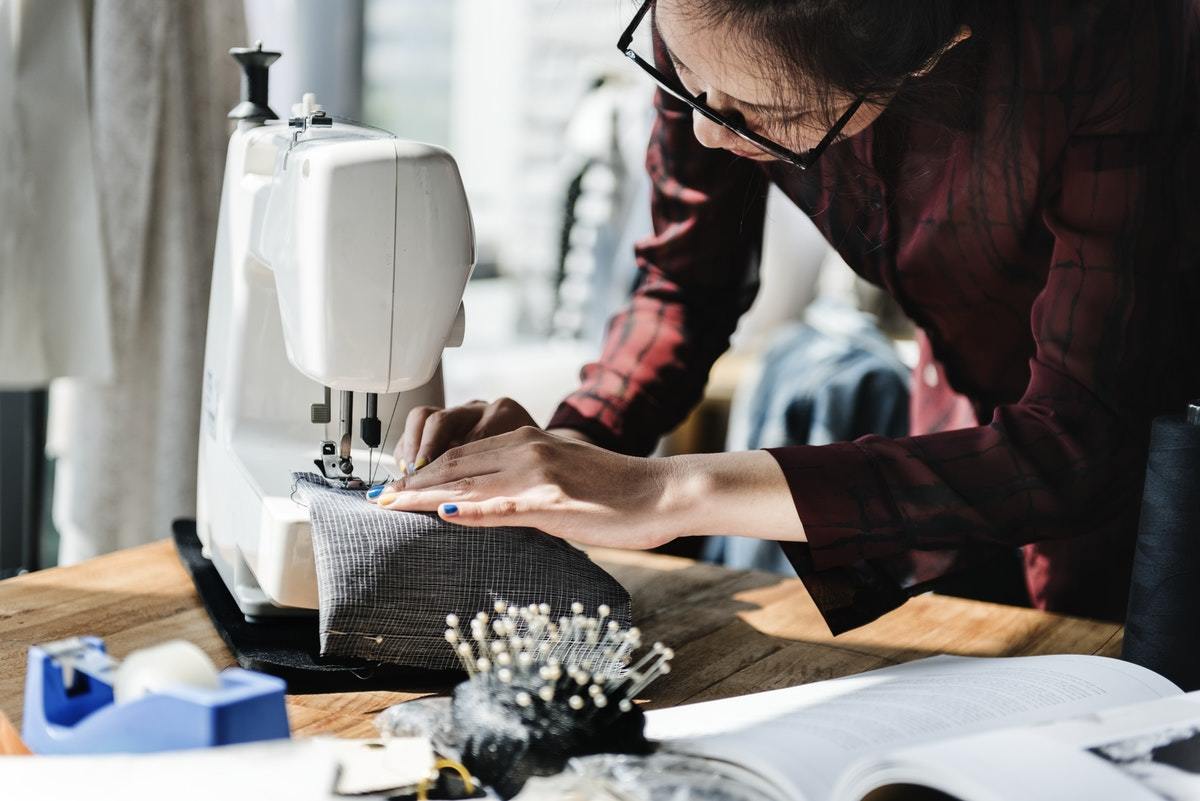News just in; the kids are alright. Greta, ER et al. are that low-wattage lightbulb at the end of the tunnel we’re all looking for, make no mistake. As the recent climate change protests demonstrated, the planet may well be safer in our next generation’s hands. But why wait for a crop still growing to turn things around? Climate change is happening right now and according to reports, we only have 12 years to limit climate change catastrophe. It’s time to act now, and decisively, if we want to see tomorrow. With that in mind, here are 5 IDEAL ways to right our throwaway culture.
FORGO FASHION…
Our throwaway culture reaches its apex when we consider the issue of fast fashion. Indeed, fashion produces some of the highest percentages of waste of any industry on the planet, with the UK alone sending £140 million of clothes to landfill each year. We’ve written more about how to reduce your fashion wastage over here, so check it out!
Of course, whenever you can avoid throwing clothes and accessories away by fixing them up and giving them new life, then you should do. For clothes, all you need is a needle, some thread and a little nous to prolong the lifespan of the clothes you wear. To repair broken accessories like a belt with split or fraying leather, all you need is a little super glue power – vital stuff indeed.
…& FOOD
Giving fast food a swerve and being more mindful of your waste in the kitchen is another great way to do your bit. As we mentioned, shopping in bulk at markets which don’t use loads of plastic is a great start. Another way to be a more conscientious cook is to let the seasons and what’s good locally dictate your shop. Food sourced close by won’t have travelled so far to reach you, and those at the peak of their powers seasonally will have been less dependant on chemicals and fertilizers to grow well. Be good with your leftovers and scraps too, turning them into delicious meals in their own right. Discarded tomato seeds? A superb salad dressing. Broccoli stalks? Time for a stir fry. Meat scraps? Proper gravy incoming. You get the picture.
PHASE OUT PLASTIC
We all saw it on Blue Planet 2. We heard scientist’s warnings on the radio. We read the environment secretary’s realisation this was a thing in the newspaper. But still, we wonder when this all might sink in; our use of plastic is way out of hand. ‘But it’s just a drop in the ocean’, we hear you say. Indeed, but an ocean soon to be empty of existence.
There are plenty of things you can do to reduce your use of the single use stuff. Of course, bidding sayonara to straws is well documented, but this shouldn’t be your only nod to streamlining your usage. It should also be part of your routine to now take a rucksack to the shops for your groceries, ditto carrying around a water bottle suitable for refilling. Buying in bulk from markets which don’t package every. single. damn. item. of. fruit. separately in plastic is another valuable step. Every little helps here.
REPURPOSE OR RECYCLE
Though plastic waste perhaps takes up most space in newspaper columns, it’s certainly not where our wasteful streak ends. Where once the mantra was very much ‘if you can’t use it, lose it’, now a simple rule for cutting back on our throwaway tendencies is to either repurpose or recycle instead. Adopt that mantra for everything. Broken wood about the house? That’s a new item of furniture. Torn t-shirt? Perfect dish cloth. Plastic bag with holes in? An amusing Halloween mask. Okay maybe not the last one, but you get the picture. And anything that can’t find a new home heads for the recycling not landfill. Done.
HOME ENERGY HACKS
The way we use our domestic appliances is also indicative of that throwaway culture. It’s not difficult to change up those habitual hiccups at home with a little deliberate changing of ways. Firstly, let’s head to the heart of the house where energy (and money) is thrown away each day. A few low effort hacks in the kitchen can make a big difference cumulatively to your energy use. Try turning your oven off 10 minutes before you’re finished cooking to save on energy, as it stays hot long after the dial has been turned to zero. Or, simply use your oven less; harnessing the power of your microwave instead is often less wasteful. Boil only the water you need, including in the kettle. It all adds up.
Practical, mindful behaviour in the bathroom will have you wasting less water too. Don’t leave taps running longer than they need to (during tooth brushing, less deep baths, washing your face in spurts…), and wash your clothes less; scheduling in a weekly wash only. Don’t stop there; shower for significantly less time and perhaps follow the old adage; if it’s yellow, let it mellow…We needn’t finish that one.






